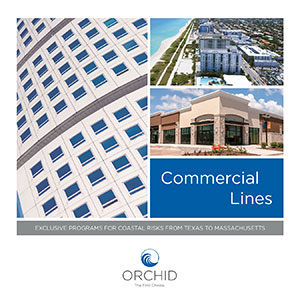Many homeowners, unfortunately, neglect to file a claim following a minor incident because they fear that their insurance rates will go up. But they may not realize their rates could go up due to several other factors.
The Top Reasons Why Your Home Insurance Rates are On the Rise
Homeowner’s insurance rates often go up from one year to the next. In most cases, homeowners only see a slight increase in their premiums that isn’t very noticeable. However, if you look at your insurance rates from when you first purchased your home and your current rates 10 to 20 years later, it is easy to see the difference.
Although filing a claim is one of the leading causes of homeowner’s insurance rates to go up, several other factors can influence your premium. Even if you have never filed a claim, your rates can still rise because of the following circumstances.
The Concentration of Risk Goes Up in Your Local Area
There are some cities throughout the nation where homes are at a much higher risk. Locations that are prone to storm damage, high-crime areas, and communities filled with luxurious properties will have much higher homeowner’s insurance premium rates than others. Because insurance companies want to preserve their cash flow as much as possible, they do whatever it takes to diversify their risks.
If an insurance carrier is already providing their coverage to a specific location that falls into these high-risk categories, they will increase the rates in that area. That will help them not to become too over-concentrated in that geographical location, and therefore, they are not paying out for multiple claims following a tragic event. Some companies are known to increase rates rapidly in areas where risk is on the rise so that some of their policyholders would consider moving on to a different insurance provider.
The Cost of Inflation
Most homeowner’s insurance policies are designed to cover the total replacement cost for your home. These costs are known to go up due to the ongoing rise in inflation. That means the cost of replacement from the ground up will change from one year to another. That can be due to everything from the rise in labor costs to the price of supplies needed to rebuild. As these costs go up, the premium for your insurance also needs to go up. That will help to guarantee that the insurance provider has the funds available to cover the cost of repairs. Keep in mind that the cost to replace your home is different from the market value of your property.
A Roof in Need of Repair
The roof is one of the most essential parts of your home. It provides you, your family, and the contents of your home with protection from the outdoor elements. If you live in an older home and don’t regularly check it for damage, you could put yourself at risk for higher insurance rates. Older roofs are known to leak following severe storms that involve hail or strong winds. The shingles can become damaged without you knowing anything about it.
Therefore, it’s wise to have it checked by a professional on a routine basis to avoid any premium hikes. That is especially necessary if your roof is over 15 years old. Different types of shingle material will last longer than others, so if you are replacing your old roof, be sure to find out more about which materials are the best option for your specific climate. There are many types of home repairs or replacements that can help improve the value of your property while decreasing your insurance premium at the same time.
A Decrease in Your Credit Rating
If your credit rating is faltering, it could end up harming your homeowner’s insurance rates. As with practically anything else, the higher your credit rating is, the more budget-friendly your insurance rates will be. A good credit score that is unlikely to affect your rates is around 670 or higher. Bad credit scores are typically those that fall under 580. All homeowner’s insurance providers will take a look at your bad credit and decide that it is unlikely you will be able to keep up with your premium payments. Therefore, they will charge you more to ensure they get the funds needed to cover the cost of your damages or repairs.
Several other factors could cause your homeowner’s insurance premiums to go up, all without ever filing a claim. That includes everything from outdoor items like a trampoline or swimming pool, to the addition of a new pet that could be a threat to others. To keep your insurance rates at a reasonable amount while keeping yourself protected at the same time, it’s a good idea to consider these factors and make the necessary adjustments to help lower your premium costs.
To learn more about what affects your homeowner’s insurance rates, contact your agent today for more details. They may be able to provide you suggestions on how to lower your premium.




